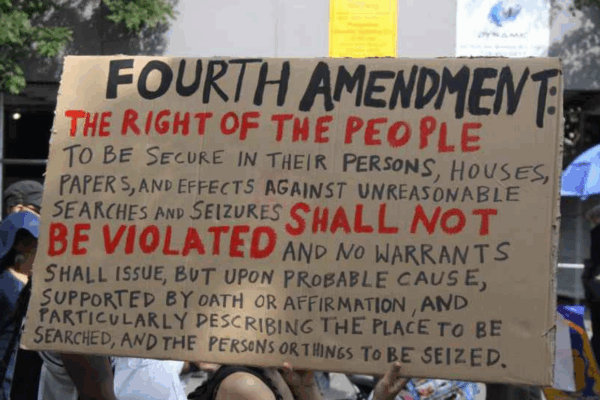One of the rights that defines America is the right to be free from warrantless government surveillance. We tend to act less freely when we’re being watched, and as a result, we are less free in a society where the government spies on us just in case we are doing something wrong.
Even in a public health emergency, we must keep a watchful eye on the government to ensure that any COVID-19 response is grounded in science and accepted public health policy, and does not infringe on our civil rights, including the right to privacy, beyond what is absolutely necessary to keep us safe from infection.
Information is undeniably critical to evaluating, understanding and implementing data-driven solutions to the COVID-19 pandemic, which has claimed nearly 100,000 lives in the U.S. and is expected to kill even more people as states and the federal government struggle to respond. It may be tempting to trade our right to privacy for the potential that the data collected could help us combat the virus, flatten the curve and save lives. Nonetheless, we must remain vigilant against the government exploiting this global pandemic to expand surveillance powers that go beyond the pandemic itself and impact all of our lives for decades to come.
Virginians expect our government and law enforcement agencies to protect both our safety and our privacy. In order to do that, the public must be involved in every step along the way as we consider deployment of new surveillance technologies in our public streets and in our skies.
Without meaningful public participation and regulations to safeguard people’s privacy, technologies that may be helpful in fighting the COVID-19 pandemic can also be used to monitor and disperse peaceful protests, thus restricting the rights of people who challenge the dominant social order and power structure. Furthermore, we can’t allow the government and law enforcement to exploit the uncertainties caused by the pandemic to implement invasive surveillance programs without inviting the public to the table.
Right across the Potomac River, for example, the Baltimore Police Department (BPD) has recently been sued by our colleagues at the ACLU of Maryland for its unconstitutional use of a wide-area aerial surveillance program that will put virtually all Baltimore residents under constant aerial surveillance. The BPD argued that data collected by these privately funded airplanes will be used to help with the investigations of murders, shootings, armed robbery and carjackings — and not to enforce the Maryland Governor Larry Hogan’s “stay-at-home” order. Yet, the pilot program was approved at a time when most of the city is on lockdown, which has disrupted community engagement efforts to inform people about the airplanes and collect public input. Black people and people with lower incomes are over-policed and more likely to be impacted by this program. That’s why it is essential for people in these communities to be given the opportunity to give input and hold their officials accountable for misuse of surveillance data.
In Virginia, we have successfully advocated for responsible regulation and public oversight over the use of drones, because it’s the abuse, not use, of this popular technology that concerns us. We worked with Virginia lawmakers on legislation to regulate drones, published the principles that would guide development of such legislation, and invited representatives from across the political spectrum into the conversation. As a result of our effort, in 2012, Virginia passed a law that required law enforcement agencies to get a warrant for drone use, adding the Commonwealth to the list of only 11 states with a warrant requirement for drone usage by law enforcement. It’s important to bring Virginia’s privacy laws to the 21st century and ensure that governmental use of invasive surveillance technologies goes hand-in-hand with effective public oversight and reasonable regulations. The ACLU of Virginia will continue to advocate for responsible use of surveillance technology in a way that protects both public safety and our right to privacy — an essential element of a free society.
At a time when federal, state and local agencies are considering or implementing technology to monitor social distancing, such as drones, real-time location tracking via mobile devices or contact tracing apps, without public engagement or reasonable privacy safeguards, we must not lose sight of the fundamental principles over the use of these invasive technologies. Technology can be a powerful and effective tool to fight crime, improve public safety and solve problems, but strict regulations must be in place to ensure that this same technology cannot be abused by law enforcement agencies to intrude and threaten the privacy that is essential to our liberty. The public should always be engaged in decisions on when, where and how to use surveillance equipment. We must not allow the government to use the COVID-19 pandemic as an excuse to make these decisions about us without us. Transparency is vital to building trust, and we must work together to find solutions to this common problem.
Virginians expect our government and law enforcement agencies to protect both our safety and our privacy. In order to do that, the public must be involved in every step along the way as we consider deployment of new surveillance technologies in our public streets and in our skies.


